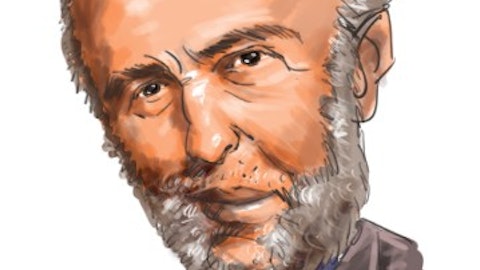And I think we can wait a little longer. So there will be some deferred demand — pent-up demand at which point, we will have the franchise to harvest that. So we want to maintain the franchise. Meanwhile, last year, the people in the investment banking business shrunk significantly. And in terms of measures suggest the decline in profitability, we did do a cost reduction, which was quite large for Nomura. And this time, the cost income ratio being very high, was frankly due to more of a revenue issue rather than a cost issue. And this time, in Q3, the business unfortunately booked the loss, but GM earnings, JPY150 billion, which is quite tough. And in terms of client revenue increased or improved on a quarter-on-quarter basis. So we were not able to monetize from the revenue opportunities as well as we should have.
October, with the dollar appreciation shifting towards dollar weakening and interest rate movement was quite choppy. And at that time, we were not able to secure revenues as well as we should have. And that was the major lesson that we learned from that period. And in Q3 — at the beginning of Q3, especially October, things were quite tough. And as the months went by, wholesale, especially Global Markets earnings have improved, and that trend is continuing in January as well. So in the mid to long term we do have the platform to capture the upside in the future. Agency mortgage business in this quarter was quite tough. And revenue on RWA, 5.9%. And if we exclude those factors, yeah, it was as bad as that. And I can’t give the exact number, but if we exclude the sluggish mortgage business, the revenue over RWA was reasonable.
Thank you.
Masao Muraki: Regarding the risk assets, this is Muraki again. On Page 15, you show how the risk assets has continued to increase. And you explained the reasons for this. But in terms of new risk taking, is that not that large or has that had an effect on this? And also, the FRB’s additional regulations are — last year, you have been reducing your risk assets in relation to the FRB’s actions. But has there been any positive effects from that?
Takumi Kitamura: This is Kitamura. For RWA, there was a slight increase. And in Q2, the increase in RWA was due to the currency levels. And this time, the JPY800 billion, JPY900 billion increase of RWA, and that was due to — and I’m sure you know better — you know this was due to a technical stress SVaR that’s what increased. And in the stress scenario, the positioning just happened to be that way. And so it’s not like we have taken additional risk, the SVaR (ph) increased regardless of that. So the effect of that is the main cause for the slight increase in RWA. So again, it’s not like we are taking some risk, which we haven’t taken on in the past. And in fact, from a business perspective, we were quite cautious in Q3. But the SVaR increase caused the rise in the overall RWA.
Masao Muraki: Understood. Thank you very much.
Operator: Thank you very much. Your next question will be by Watanabe-san of Daiwa Securities. Watanabe-san the floor is yours.





